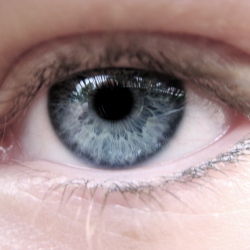
If you can’t get real sleep, perhaps you can make up for it with placebo sleep. Or such is the suggestion of a new study that found that people did better on cognitive tests after being told that they got a high proportion of REM sleep, even if they didn’t. Researcher Eric Horowitz describes the study in his blog, "Peer-Reviewed By My Neurons":
In an initial experiment participants were given brief lesson on the relationship between sleep quality and cognitive functioning, and told the normal proportion of REM sleep was between 20% and 25%. Participants were then hooked up to a machine and told it would measure their pulse, heart rate, and brain frequency, after which a program would use the data to calculate the amount of REM sleep they had had the night before. (Very few participants reported having suspicions about the [fake] machine.) Some participants were told they got 16.2% REM sleep (below average sleep quality) and some were told they got 28.7% REM sleep (above average sleep quality.)
Study participants were also asked to self-report how well their sleep went.
It turns out that those who were told they got better sleep did better on a test of information processing speed called the Paced Auditory Serial Addition Test (PASAT), which involves adding many numbers together, as well as on a verbal fluency test called the Controlled Oral Word Association Task (COWAT). Those who were told they got lousy sleep did worse. The same relationship didn’t hold for self-reported sleep quality, those who thought they got better sleep didn’t generally do better on the PASAT than those who thought they hadn’t had a good night’s slumber.
As the authors conclude, "these findings supported the hypothesis that mindset can influence cognitive states in both positive and negative directions, suggesting a means of controlling one’s health and cognition." How exactly you could trick yourself into thinking you got better sleep than you really did is unclear. Although perhaps, as Horowitz writes, if "you’re able to convince yourself that your bedtime routine is working, whether it’s reading, exercising, or eating honey, you might see the cognitive benefits of improved sleep even on nights when you don’t actually sleep better."
